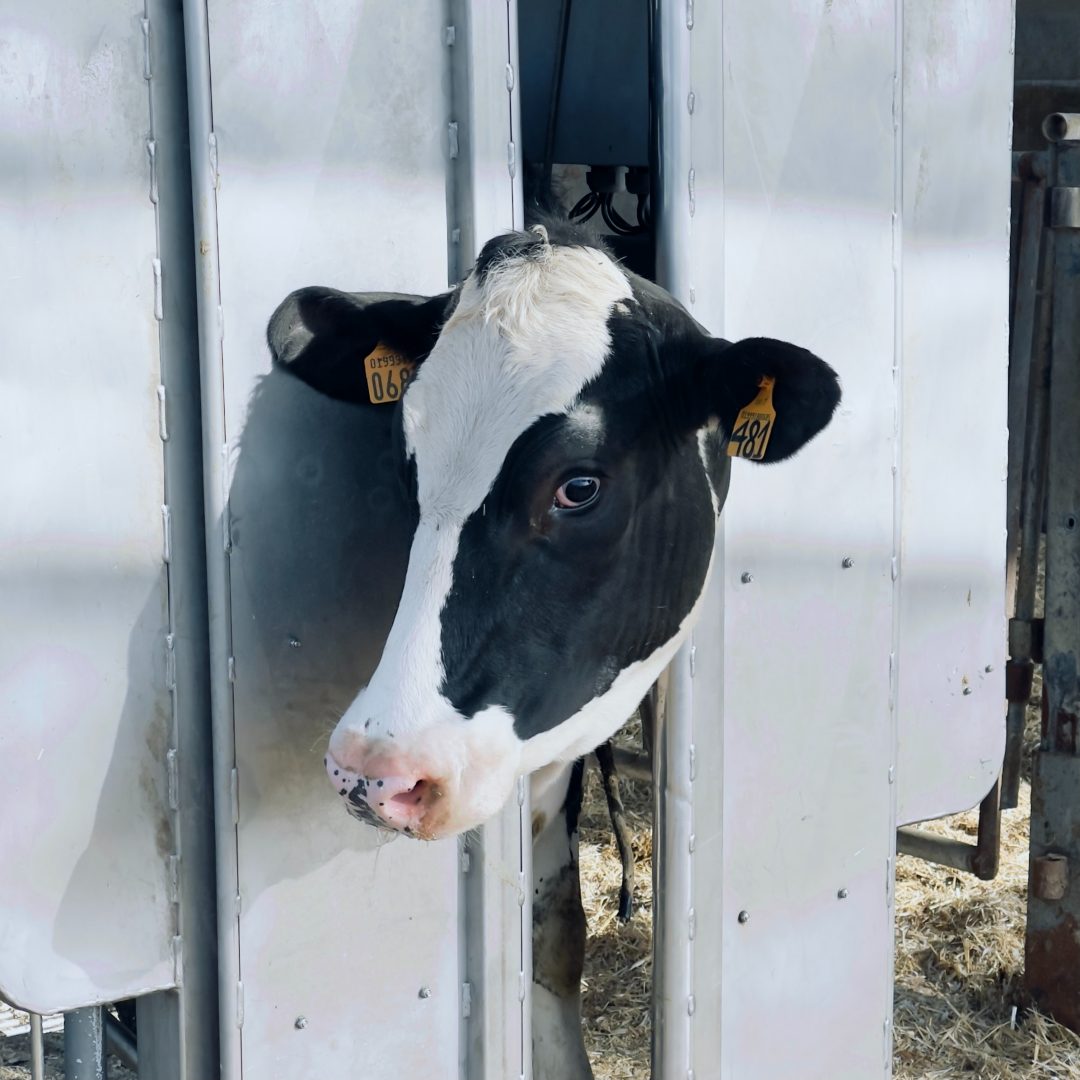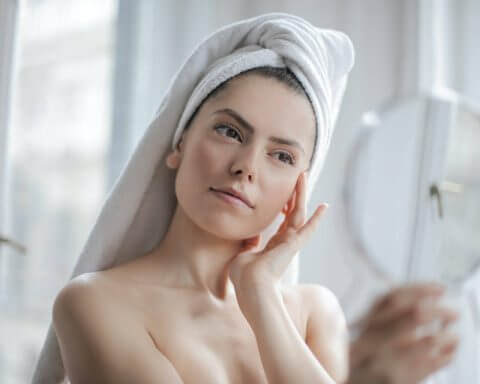If you have a recurring acne outbreak, you might have probably searched a lot about the causes, symptoms, and treatment already.
One popular solution talked about online is going dairy-free. Some of the stories you’ll find about going dairy-free can be pretty convincing, which may compel you to cut out dairy products from your diet.
However, although there’s plenty of circumstantial evidence, there’s little scientific evidence supporting the claims that eating dairy products can cause or worsen acne. That’s why there’s a need for more research in this area before we can make firm conclusions.
Our article will examine the scientific reasons linking dairy and acne and later discuss possible ways of improving acne.
What does Science Suggest?
Scientific researches take a lot of time to conduct, and a few studies have examined the link between dairy and acne. However, results are conflicting, but we can deduce a few theories about how dairy products might cause or worsen acne.
Here are a few ideas raised in the few studies conducted by researchers:
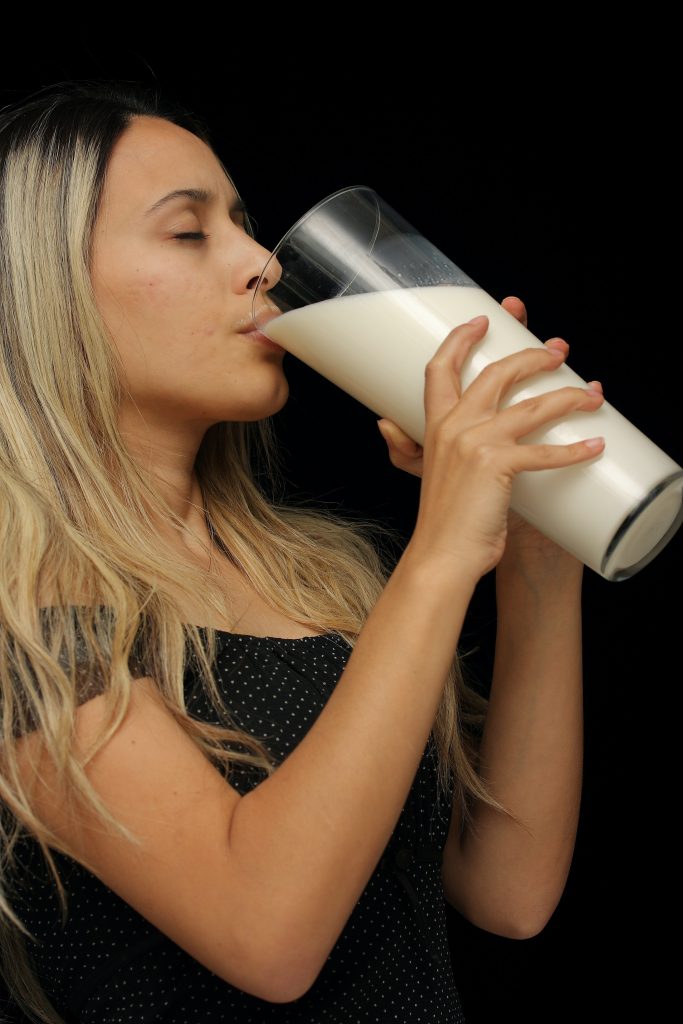
IGF-1 Growth Factor
IGF-1, or insulin-like growth factor, is a hormone present in the blood. Natural milk contains several hormones such as IGF-1, prolactin, steroids, and prostaglandins.
One study involving adults who drank three servings of milk daily for twelve weeks indicated that their IGF-1 levels were 10% higher than those who didn’t drink milk. Other studies also indicate that daily milk consumption increases IGF-1 levels by 9-20% in tweens. Another study found that people with acne had higher levels of IGF-1 than those without breakouts.
IGF-1 may also increase the production of sebum. Sebum is an oil produced by the skin. If produced in large quantities, sebum block skin pores, causing acne.
Hormones
Several studies indicate that milk hormones may worsen acne and contribute to pimples. For example, milk has androgen hormones associated with acne breakouts. The most prominent androgen hormone is testosterone, which is strongly linked to acne breakout.
Although the connection between testosterone and acne breakout is complex, we can simplify the chain reaction that occurs in your body due to increased testosterone by saying that testosterone increases the production of dihydrotestosterone (DHT). DHT stimulates the production of sebum by the skin, thereby clogging the pores. Clogged skin pores cause acne and pimples.
It’s important to mention that although testosterone is thought to be a male hormone, it’s also produced in women’s bodies, but in lesser amounts.
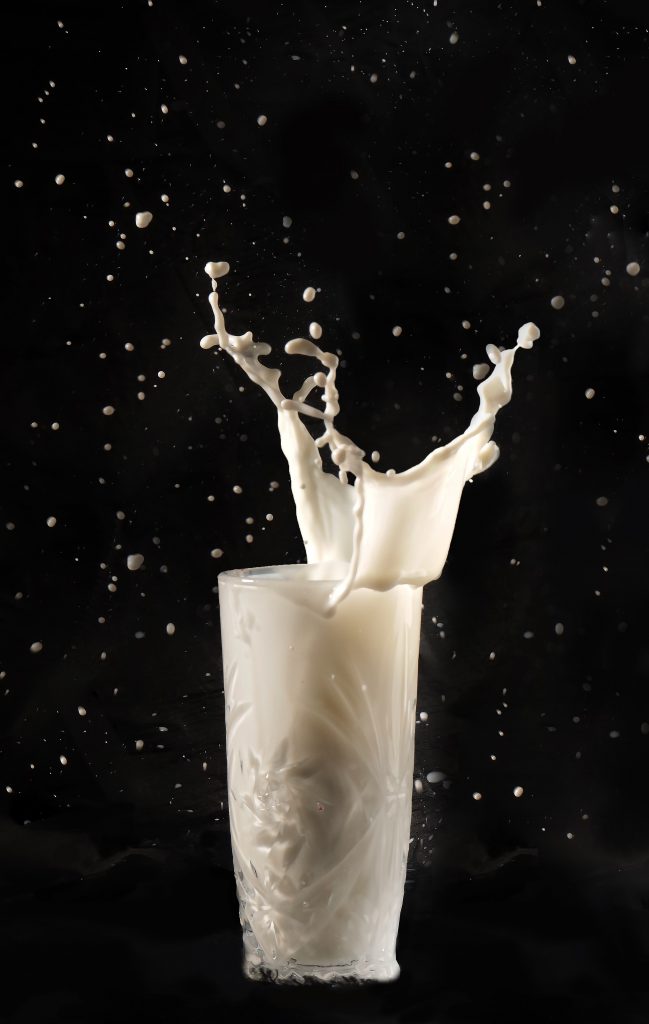
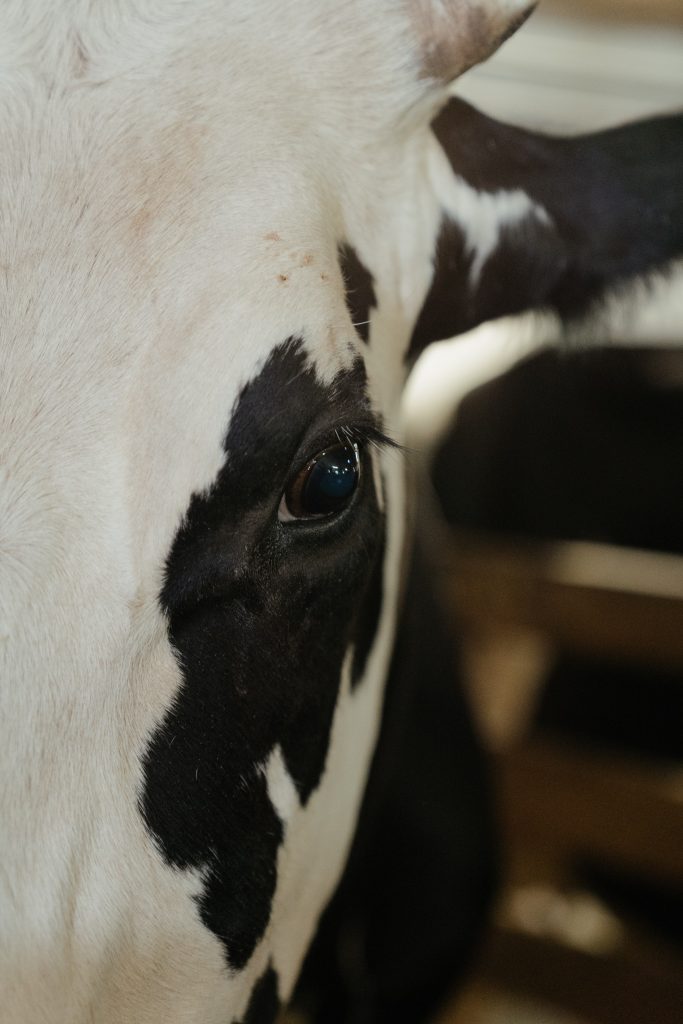
Milk Proteins
Skim milk increases acne outbreaks more than low-fat milk and whole milk. This may be attributed to the high protein levels in skim milk rather than fat content.
The main proteins in milk are casein and whey. Whey increases insulin levels in the blood while casein increases IGF-1. Both results may trigger an acne breakout.
Artificial Hormones
In the US, cows get recombinant bovine growth hormone (RBGH) injections to boost milk production. rBGH increases milk production in cows by raising IGF-1 levels.
Cows treated with RBGH may produce milk with higher IGF-1 levels than milk from untreated cows. If you consume milk from rBGH-treated cows, you may have higher levels of IGF-1 in the blood, which may cause or worsen acne.
However, the FDA states there’s little evidence suggesting that milk produced by rBGH-treated cows tends to have higher IGF-1 levels than milk from untreated cows.
Can I Eliminate Acne by Avoiding Dairy?
Although there’s circumstantial evidence suggesting that avoiding consumption of dairy products can reduce acne breakouts, there’s unsubstantial scientific evidence to prove that.
Researchers know there’s a connection between the consumption of dairy products and acne, but they are yet to establish why it happens or whether or not avoiding dairy products can improve acne.
However, what research has proven is that:
- People who consume dairy products are more likely to get acne frequently than those who do not.
- Drinking one or more glasses of milk everyday can increase your chances of getting acne
- There may be a connection between the western diet and acne. Western diet typically includes foods with a high glycemic index and dairy products. 80% of people who are on a typical western diet (most of the U.S. population) get acne at some point in their lives.
Therefore, if you think that diet, especially dairy products, might be contributing to your acne, you can avoid it altogether and see if your acne will improve. The good thing is that there are many substitutes for milk, cheese, and butter, and you may be surprised to find out they taste even better. However, keep in mind that just because the alternatives are plant-based doesn’t mean they are healthy. Always check the labels and avoid foods with added sugar, preservatives, or any artificial ingredients.
Additionally, you may need to avoid using certain beauty and hair products as they may have ingredients that cause a breakout.
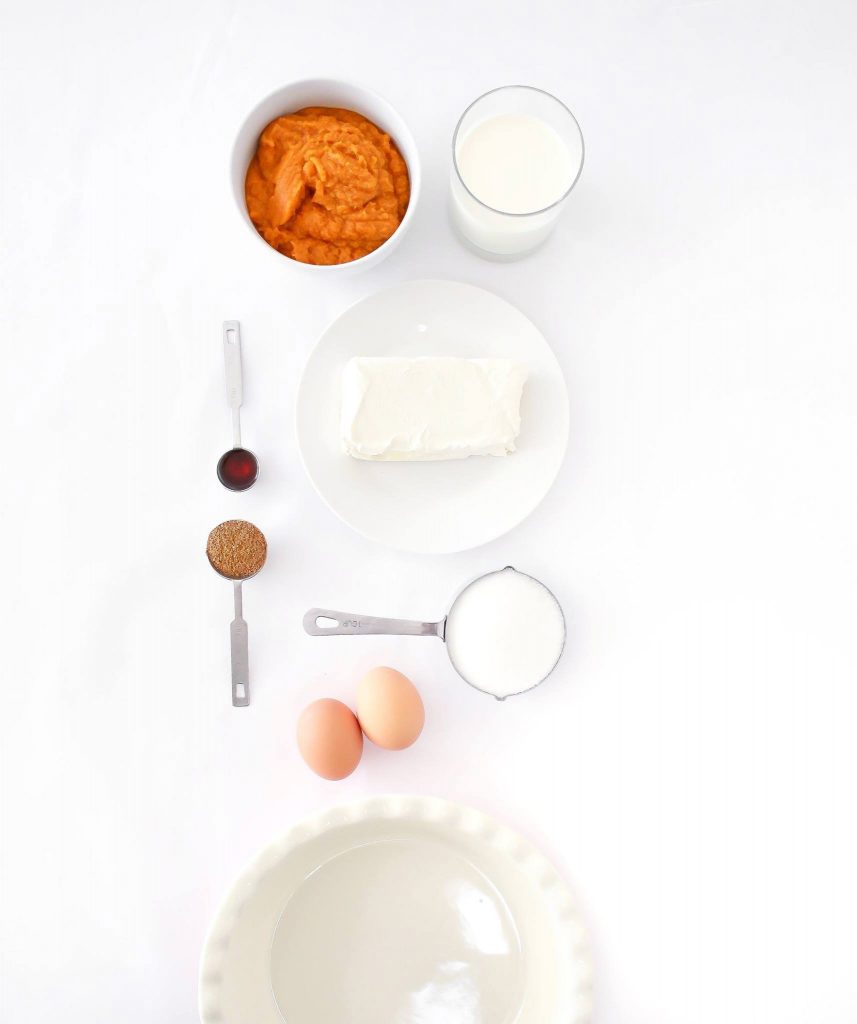
VOIBON TIPS
There are several things you can do to soothe acne flare-ups and prevent the condition from worsening:
Try topical CBD skincare oils. CBD has anti-inflammatory properties, and may help reduce sebum production in the skin.
Try over-the-counter treatments. Acne products containing alpha-hydroxy and salicylic acids may help unclog your skin pores.
Avoid oil-based beauty products during an acne breakout.
Avoid squeezing acne blemishes. When you squeeze an acne blemish, you break the skin and expose it to bacterial infection.
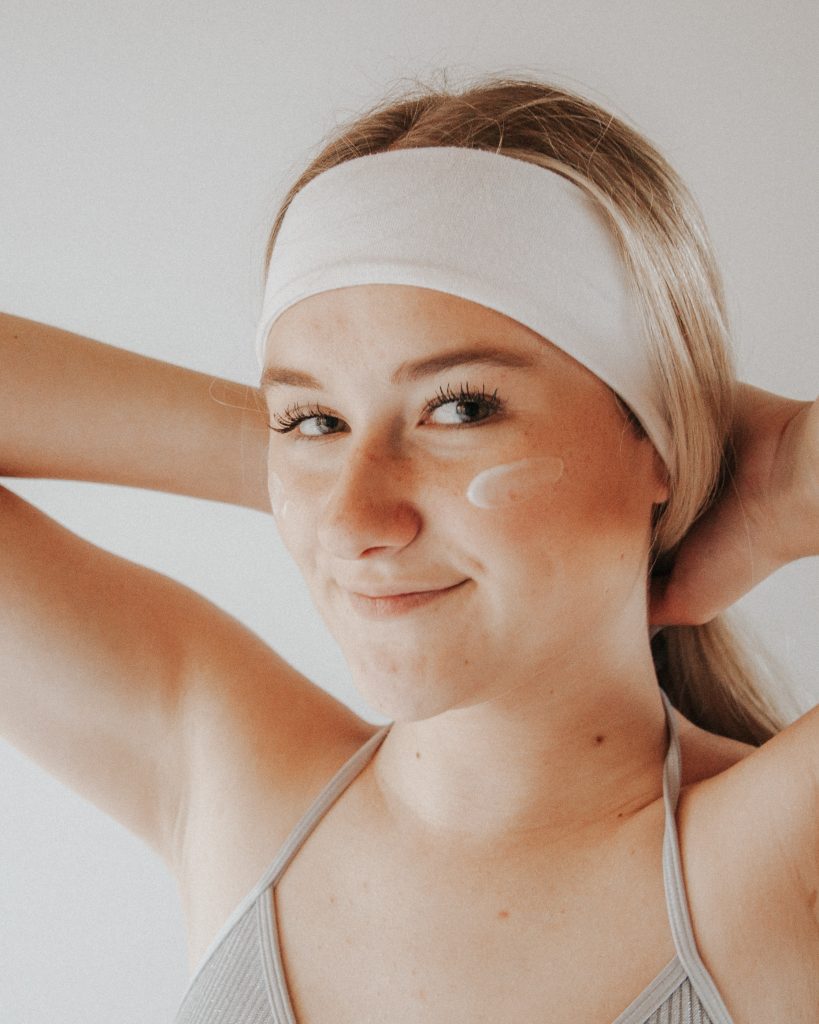
Conclusion
Will cutting out dairy help improve my acne? It’s hard to say with certainty that this will help. Any improvement you may notice from cutting out dairy from your diet might be temporary or caused by multiple factors.
However, if you’d like to cut out dairy, there’s no harm in that as long as you eat a balanced diet with all the nutrients and minerals your body needs.
If your acne fails to improve even after cutting out dairy products, you can try the above remedies, such as CBD skincare oils, avoiding oil-based cleansers and beauty products, and using over-the-counter medications to manage your symptoms.
Also, remember that your skin health is affected more by what you eat than what you apply. Therefore, observe healthy eating habits to reduce the frequencies of acne breakouts.

